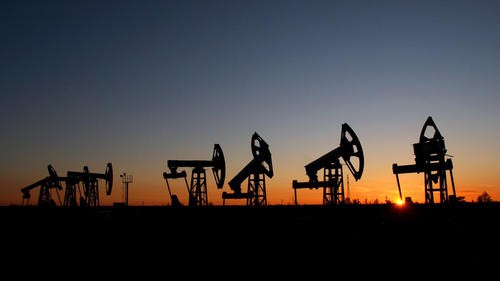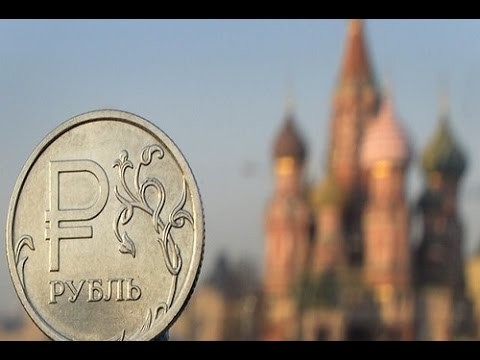Falling oil prices hit Russia much harder than Western sanctions The Washington Post
Post on: 16 Июль, 2015 No Comment

President Vladimir Putin, who took office in the wake of his nation’s 1998 financial crisis, has made economic stability a cornerstone of his nearly 15 years as leader. (AP)
MOSCOW — Plummeting oil prices are doing to the Kremlin what sanctions could not: forcing a grim rethinking of Russia’s economic future.
Nine months into the worst relations between the West and Russia since the Cold War, the plunging price of oil is causing deeper and swifter pain than the Western sanctions that have targeted key areas of Russia’s economy. Russian leaders said Tuesday for the first time that their economy will head into recession next year. In a nation where oil and gas exports largely determine the bottom line, lawmakers are slashing spending promises. And the ruble is hitting historic lows every day.
President Vladimir Putin, who took office in the wake of his nation’s 1998 financial crisis, has made economic stability a cornerstone of his nearly 15 years as leader. He has vowed that Russia will survive the current decline in energy prices — but he has also accused the West of waging pocketbook warfare over the cost of a barrel of oil. Putin’s approval ratings remain near record highs, but opinion polls also show new economic fears, a warning sign for the future.
“We simply need to implement our agenda calmly,” Putin said last month in an interview with the state-run Tass news agency. “Many say that oil prices are falling because a tie-up is possible among traditional producers, particularly between Saudi Arabia and the United States. They say this is being done especially to let the Russian economy down. . . .
“Does this damage us? It does partially, but not fatally,” Putin said.
For shale oil in the U.S. permits for new wells dropped 15 percent in October, the first sign of a slowdown, according to Reuters. Sliding oil prices have also hurt prices of U.S. corporate junk bond funds. (Reuters)
The turmoil comes as Western sanctions against Russia appear likely to remain in place for years. The United States and Europe imposed them after the Kremlin annexed Ukraine’s Crimean Peninsula in March and ramped them up in July after a civilian jetliner was shot down over territory held by pro-Russian rebels in eastern Ukraine.
But the sanctions have done little to alter the core policies they were intended to target: Moscow shows no intention of giving up Crimea, and Western leaders say Russia actually upped its involvement in the conflict in eastern Ukraine after July’s round of sanctions.
Oil prices appear to be changing policy calculations far more quickly, in part because Russian leaders believe they are significantly more threatening, given oil’s role as the lifeblood of the Russian economy. Finance Minister Anton Siluanov last week pegged the cost of lost oil revenue at $90 billion to $100 billion a year and the cost of sanctions at $40 billion.
Russian worries accelerated late last week after OPEC decided not to try to bolster oil prices by cutting production. That sent global oil prices to five-year lows Monday. They have since recovered slightly, but Russia’s central bank has said that it is making plans for next year based on an oil price that it had until recently used only for the toughest stress tests of the economy.
The energy prices will push Russia’s economy into recession next year, Russian officials said for the first time Tuesday. Deputy Economy Minister Alexey Vedev said the price of oil was the main culprit in the first recession since 2009, although he also said sanctions and other issues within Russia’s economy contributed.
The bleak prospects are setting in among the broader Russian population. In an October opinion poll conducted by the independent Levada Center, 61 percent of Russians said they expected a decline in living standards and an economic crisis “in the near future.”
The upheaval is clearly making Russian lawmakers nervous. Several members of parliament asked the country’s top law enforcement official to investigate whether the central bank was breaking the law by refusing to intervene more forcefully to prop up the ruble, the Russian Interfax news agency reported Monday. Economic officials have said they will have to revise the already-approved 2015 budget, although they have not detailed planned cuts.
(The Washington Post)

News of the expected economic contraction sent the ruble dropping yet again Tuesday, pushing it down 5.5 percent against the dollar. The ruble has slumped 36 percent since the beginning of July, almost hand in hand with the falling price of oil. The decline means higher prices for imported goods, and the central bank said it expected a painful 10 percent inflation rate in 2015. Western brands such as Apple have already raised their prices in Russia; Ikea says it will follow suit, according to the Tass news agency.
Putin will address Russia’s upper house of parliament Thursday, and in his speech he is widely expected to unveil his domestic economic plans for the coming years. Monday, he scrapped an ambitious, $19 billion natural gas pipeline project to southeastern Europe. That decision came largely because of cold E.U.-Russia relations over Ukraine, but some analysts said the price tag was probably a factor.
Given how dependent Russia is on energy revenue, the decline in oil prices has forced policymakers to confront a grim future in a way the sanctions have not, analysts said.
“Oil prices are obvious. Sanctions are not,” said Leonid Grigoriev, an economist at Moscow’s Higher School of Economics. “There’s nothing new here. Less oil means less money.”
Some aspects of Russia’s finances still stand it in good stead. The state’s debts are low. Its international reserves were $429 billion at the end of October, down by a fifth since last year’s peak but still enough to hold off major economic calamity for about two years, analysts said. And the ruble’s slide has helped cushion the blow to state coffers, since oil transactions are in dollars: A barrel of oil at $71 on Tuesday actually bought more rubles than it did in July, when oil was $110.
Many years of high energy prices infused Russia’s economy with a gusher of cash, but other industries were left underdeveloped, making the nation particularly vulnerable as oil falters. Any Russian company that has loans denominated in dollars but profits coming in rubles will find it far harder to pay back its debts. And U.S. and E.U. sanctions on Russia’s financial sector make it tough for companies to borrow more.
For now, many here are pessimistic about the future.
“I don’t see a good way out for them except for making friends with the West again,” said Vladimir Milov, an energy analyst and opposition politician. “But this won’t happen quickly, and time is against us.”
Michael Birnbaum is The Post’s Moscow bureau chief. He previously served as the Berlin correspondent and an education reporter.














